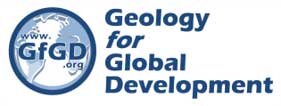New Book Sets Out the Role of Geoscience in Achieving a Sustainable Future
The role of geoscience in achieving the UN Sustainable Development Goals is the subject of a new book collated and edited by Geology for Global Development (GfGD) and the British Geological Survey (BGS).
In 2015, global leaders came together at the United Nations to agree 17 Sustainable Development Goals (SDGs), providing a blueprint to create a better and more sustainable world for all with a vision of ‘a world free of poverty, hunger, disease and want, where all life can thrive’.
Geosciences and the Sustainable Development Goals, published by Springer-Nature, explores how geoscientists’ understanding of the natural environment is essential to achieving this vision. Edited by GfGD Executive Director and BGS scientist, Dr. Joel C. Gill and BGS Global Science Director, Dr. Martin Smith, the book features contributions from 42 authors across six continents
“The transformational vision of the 2030 Agenda for Sustainable Development demands our attention and action,.
“Tackling complex challenges requires interdisciplinary solutions, engagement and participation by diverse groups from across sectors and disciplines. This includes geoscientists. We wrote this book to demonstrate how geoscientists’ understanding of Earth systems, dynamics and resources can support sustainable growth and decent jobs, resilient cities and infrastructure, access to basic services, food and water security, and effective environmental management”
“We hope it will support geoscientists, in all sectors and specialisms, to play their part in securing a sustainable and equitable future for all.”
Dr. Joel Gill, GfGD Executive Director and BGS scientist
Although geoscientists are encouraged to take an active role in achieving the SDGs, sustainability concepts are not always included in the traditional education of many geoscientists, which could limit their ability to engage with them in a meaningful way.
The book takes readers through 17 chapters, each exploring how geoscience contributes to the 17 SDGs through the diverse perspectives and examples of the global authors.
It discusses a range of themes from ethics, to equity, conduct, and partnerships, as well as exploring many varied aspects of geoscience such as water, energy, minerals, engineering geology and geological hazards.
Dr. Gill added:
“This book is both a call-to-action and a reminder that ensuring lasting, positive change depends on how we work and our commitments to ethical practice, strong partnerships, integrity, and diversity, equality and inclusion.”
“Each chapter includes learning resources to help educators contextualise and apply the substance of the book.”
Over the coming months, GfGD will be proactively working to facilitate access to this book in the Global South, by distributing copies to geoscience institutions and appropriate development agencies.
For further information, please contact us via our website.
Further Resources
Higher Education Learning Resources - Geosciences and the SDGs: Higher Education Learning Resources — Geology for Global Development (gfgd.org)
External Blog (February 2020): GeoLog | GeoTalk: Joel Gill discusses the UN’s Sustainable Development Goals and the ‘Decade of Action’ (egu.eu)

